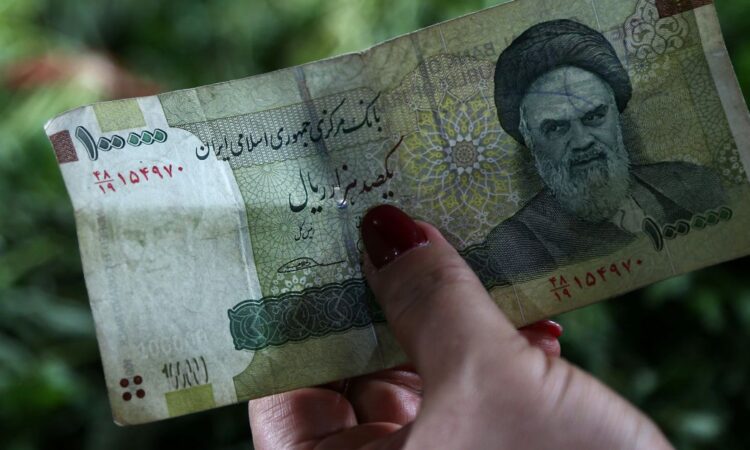
DUBAI, Dec 10 (Reuters) – Iran’s troubled currency fell to a new low against the U.S. dollar on Saturday amid continued unrest and the country’s increasing isolation in the face of Western criticism of its security crackdown and ties to Russia.
The dollar was selling for as much as 370,200 rials on the unofficial market on Saturday, up from 367,300 on Friday, according to the foreign exchange site Bonbast.com.
The rial has lost 13.8% of its value since nationwide protests erupted after the death in police custody of a 22-year-old Kurdish Iranian woman, Mahsa Amini, on Sept. 16.
The unrest poses one of the biggest challenges to theocratic rule in Iran since the 1979 Islamic Revolution.
The economic Ecoiran website said traders saw little hope for the revival of Iran’s nuclear deal with world powers and saw Western pressure increasing over Tehran’s crackdown against the protests and its military ties with Russia.
These include the alleged sales of drones used by Russia in the war in Ukraine, which Tehran and Moscow have denied.
“Some (traders) say current international conditions are such that the chances of reviving the nuclear deal are low, and this has caused cautious buyers to enter the dollar market,” Ecoiran said. “The price of this currency is on an upward path.”
“From the point of view of some (traders), this news (of U.S. and Western pressure on Iran) can attract the attention of currency speculators,” Ecoiran said, adding that the central bank may still be able to support the rial.
The United States announced new military aid for Ukraine on Friday and vowed to disrupt Russian ties with Iran, while Canada imposed fresh sanctions on Russia and Iran over alleged human rights violations, and Australia said on Saturday it would place targeted sanctions on Russia and Iran.
Germany on Friday condemned the first execution of a protester in Iran, while Britain announced sanctions on persons including officials from Russia and Iran it deemed responsible for human rights abuses or corruption.
Reporting by Dubai newsroom; Editing by Jan Harvey
Our Standards: The Thomson Reuters Trust Principles.



